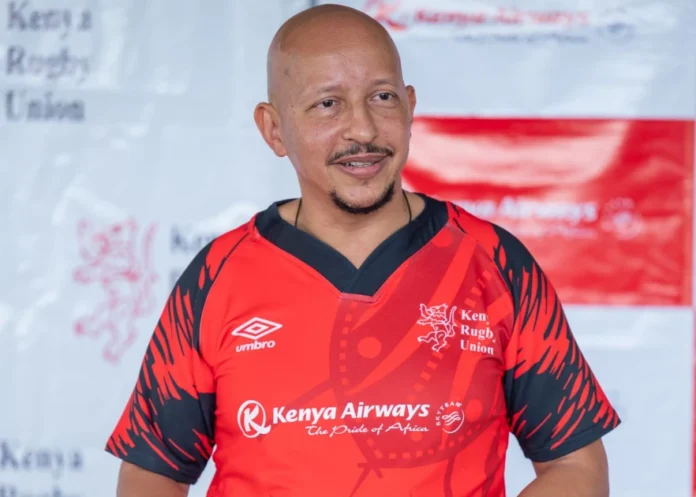In a sport often mired in boardroom wrangles and administrative infighting, Alexander “Sasha” Mutai’s departure from the helm of the Kenya Rugby Union (KRU) marks the end of a turbulent but visionary chapter in Kenyan rugby.
Mutai stepped down on May 30, during a Special General Meeting clouded by internal disputes and a looming motion of no confidence, the third attempt since he assumed office unopposed on March 29, 2023. His exit was not without defiance. “If your shirt is white and nine people say it’s black, it doesn’t change the fact that it is white,” he said in his parting remarks, a powerful metaphor for principled leadership in hostile terrain.
Though his tenure was brief, Mutai’s impact is undeniable.
A Legacy Rooted in Passion and Innovation
Mutai’s rugby journey began as a player for the University of Nairobi’s Mean Machine, where his leadership qualities were evident early on. As a student-athlete, he secured sponsorships that transformed the team’s visibility and set a precedent for commercial engagement in university rugby.
In 2006, at just 28, Mutai became the youngest director elected to the then Kenya Rugby Football Union board. His negotiation of a kit deal with KooGa ensured the national sevens team had professional-grade kits for every IRB Sevens World Series leg, an unprecedented move. He also brought Virgin Atlantic on board as Kenya’s first airline partner and was instrumental in hosting Fiji at the Safari 7s for the first time in 2008, elevating the tournament’s global profile.
Transforming Rugby’s Commercial Landscape
As Vice Chairman in 2012, Mutai secured a groundbreaking Ksh 250 million broadcast rights deal with Zuku, dramatically surpassing previous valuations and shifting how Kenyan rugby was perceived commercially. He also formalized a technical development partnership with South Africa’s Western Province Rugby Union, born from a 2006 meeting with rugby legend Cassiem Jabaar.
Even amid recent turmoil, Mutai remained focused on sponsorship and growth. Under his watch, Kenya Airways returned as a sponsor for the Simbas, Safaricom’s M-Pesa signed a Ksh 100 million deal supporting both men’s and women’s teams, and SportPesa and Crown Paints were brought back as partners—critical lifelines for financially struggling squads.
Leadership Undone by Governance Chaos
Despite his achievements, Mutai’s chairmanship was plagued by internal factionalism, legal tussles, and warnings from World Rugby about potential sanctions. “When leaders feud, it is the game, fans, and players who suffer,” he said, a sobering acknowledgment of how infighting has stalled progress in the sport.
A Departure, Not an End
Sasha Mutai’s resignation may close a chapter, but his legacy endures as a beacon of what visionary, commercially savvy leadership can achieve in sport. In an environment desperate for stability and innovation, Mutai’s blueprint offers a way forward, one that prioritizes the game above ego, and purpose above politics.
As Kenyan rugby navigates its uncertain future, it would do well to remember the lessons left behind by a leader who proved that even short tenures can leave long-lasting impact.
Written By Rodney Mbua



















